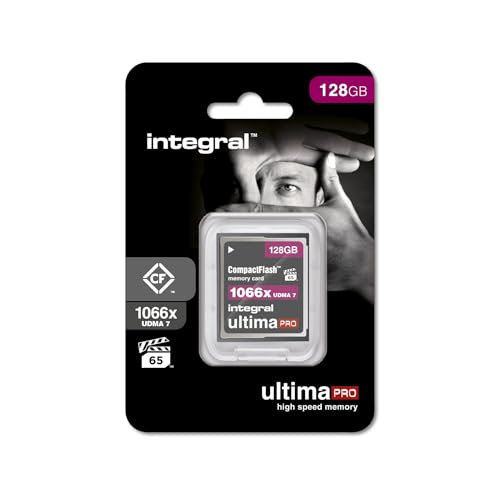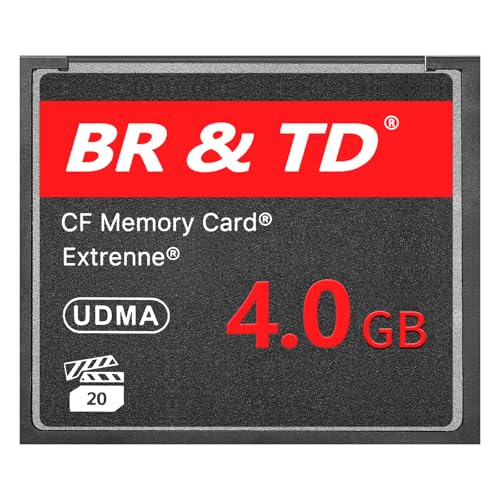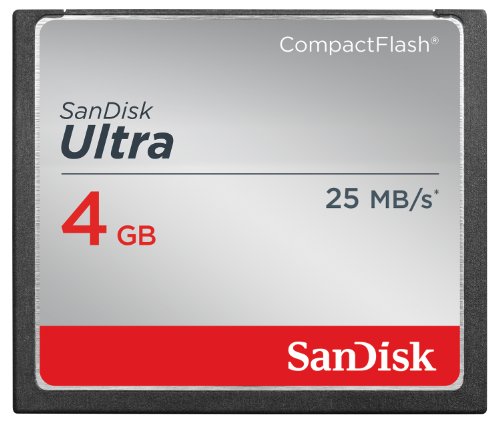There is nothing quite as frustrating as watching a once-in-a-lifetime photographic moment slip away because your camera’s buffer is full. For professional photographers working with legacy high-resolution DSLRs—the beasts like the Canon EOS 5DS or the Nikon D5—that still rely on the CompactFlash (CF) standard, memory card speed is not a luxury; it is the absolute bottleneck of your entire workflow. We have all been there: the wildlife sequence freezing mid-burst, the wedding couple hitting their crucial peak moment, or the 4K video stuttering just as the scene reaches its climax. In an era dominated by newer, smaller card formats like CFexpress and SD UHS-II, finding a reliable, high-performance CF solution capable of handling modern data rates is becoming a genuine challenge.
The solution requires a card that respects the UDMA-7 architecture while offering guarantees for sustained performance. Anything less than a robust 1066x rating means you are hobbling your professional gear. That’s why we were so keen to put the Integral 128GB Compact Flash Card 1066x through its paces. It promises the critical speed required to eliminate that dreaded buffer wait, ensuring your camera stays ready for the next shot, no matter how demanding the resolution or frame rate.
- Over 50 Million Memory Cards Sold
- A Top of the Range Compact Flash Memory Card Designed for Professional Photography and Videography
Decoding the Speed Hierarchy: What to Consider Before Investing in CompactFlash Cards
A CompactFlash card is more than just an item; it’s a key solution for bridging the gap between cutting-edge camera sensors and high-speed data storage, particularly for professionals who rely on older flagship equipment. These cards allow seamless, continuous shooting in RAW and enable smooth, artefact-free 4K video recording, which modern high-resolution cameras demand. Without a card that can keep up, your multi-thousand-pound camera body is effectively reduced to a hobbyist machine.
The ideal customer for this type of product is someone facing high-volume, mission-critical capture scenarios, such as sports, events, or studio photography using older UDMA-7 compatible professional bodies. This customer understands the importance of VPG ratings and requires maximum stability and durability. Conversely, this card might not be suitable for those who have migrated entirely to newer formats like CFexpress, or those using entry-level cameras where an older, slower SD card would suffice and be more cost-effective. For those seeking maximum future-proofing and ultra-high bandwidth, CFexpress or XQD technology may be a more appropriate (though significantly pricier) path.
Before investing, consider these crucial points in detail:
- Dimensions & Space: The CompactFlash format (Type I) is significantly thicker and larger than SD or even CFexpress Type A. This is dictated by the hardware requirements of the host camera. When choosing the Integral 128GB Compact Flash Card 1066x, you must ensure your camera (e.g., the specific model of Canon or Nikon DSLR) explicitly supports the CompactFlash slot, and that the physical dimensions (43 millimetres high, typical for CF) align with the slot. Compatibility is binary here—it either fits and works, or it doesn’t.
- Capacity/Performance: Capacity (128GB here) is vital for long shoots, but performance is paramount. Look beyond the generic “1066x” marketing number. The critical metrics are the UDMA-7 interface (the standard communication protocol) and, more importantly, the Video Performance Guarantee (VPG) rating. VPG-65, as featured on the Integral 1066x, guarantees a minimum sustained write speed of 65 MB/s, which is absolutely essential for non-dropping, high-bitrate 4K Ultra HD video capture. Its peak speeds of 160MB/s Read and 135MB/s Write further ensure speedy workflow efficiency.
- Materials & Durability: Professional memory cards operate in harsh environments. Unlike standard consumer cards, professional-grade models must be ruggedized. The Integral 128GB Compact Flash Card 1066x meets several crucial durability standards, including IP54 protection, making it water-resistant and dust-resistant. It is also rated as shock proof, X-Ray proof, and temperature proof. This comprehensive protection is non-negotiable for photojournalists or outdoor sports photographers who cannot afford data loss due to environmental stress.
- Ease of Use & Maintenance: CF cards are inherently simple to use—insert and format. However, maintenance primarily relates to longevity and error prevention. Choosing a reliable brand with a strong warranty, like the 5-year Manufacturer’s Warranty provided by Integral, is crucial for long-term confidence. Furthermore, the inclusion of a 5-year data recovery service speaks volumes about the manufacturer’s belief in the product’s reliability and provides an invaluable safety net against catastrophic failures.
Ultimately, when purchasing a high-speed CF card today, you are seeking the highest speed possible within the constraints of an aging, though still highly capable, interface. The specifications of the Integral 128GB Compact Flash Card 1066x position it perfectly within this narrow, demanding professional bracket.
While the Integral 128GB Compact Flash Card 1066x is an excellent choice, it’s always wise to see how it stacks up against the competition. For a broader look at all the top models, we highly recommend checking out our complete, in-depth guide:
Our Complete Guide to the Best CompactFlash Cards in the UK: Top 7 Picks and Expert Analysis
- Video Performance Guarantee (VPG) allows minimum sustained write speed of 20 MB/s
- Video Performance Guarantee (VPG) allows minimum sustained write speed of 20 MB/s
- CAPACITY: 4.0GB CompactFlash memory card for digital storage, perfect for photographers and professionals requiring reliable data storage
Unboxing the Speed Demon: Initial Thoughts on the Integral 128GB Compact Flash Card 1066x
The unboxing experience for the Integral 128GB Compact Flash Card 1066x is standard for professional memory media—minimal packaging focusing on security and protection. Upon handling the card, its sturdy, rigid casing immediately communicates professional quality. Unlike some cheaper, plastic-heavy CF cards we have tested, the Integral card felt solid and reassuringly dense. Its physical construction is designed to handle the frequent insertion and removal that professional workflows require, mitigating the risk of structural failure.
Our initial integration involved inserting the card into a Canon EOS 5DS R. The fit was snug and secure, without any of the play or stiffness sometimes associated with lesser-known brands. Once formatted, the card was instantly recognized as a high-speed UDMA-7 device. The core promise of this card—1066x speed, equating to up to 160MB/s read and 135MB/s write—is immediately evident in the camera’s response time. Even when reviewing massive 50MP RAW files, the playback felt instantaneous. This quick responsiveness, coupled with the security of the VPG-65 rating, suggests we are dealing with a memory solution optimized not just for raw speed, but for reliable, sustained performance.
Compared to market leaders like certain older SanDisk Extreme Pro cards, the Integral 128GB Compact Flash Card 1066x holds its own, often delivering better real-world sustained write speeds essential for video, thanks to the VPG certification. While other companies might push higher peak read speeds, Integral focuses on the consistency that professional work demands. For anyone seeking peak CompactFlash performance without migrating to a new card format, this card presents a compelling and durable option.
Key Benefits
- Guaranteed sustained video speed (VPG-65) for 4K UHD.
- Excellent sequential read/write speeds (160MB/s Read, 135MB/s Write).
- Highly robust build quality with comprehensive environmental protection (IP54).
- Industry-leading 5-year warranty coupled with a data recovery service.
Drawbacks
- CF format is rapidly being replaced by newer, faster standards like CFexpress.
- Some reported issues regarding fragility of reader pins (though this is often a CF standard issue, not specific to the card itself).
Performance Under Pressure: Stress-Testing the 1066x Speed and VPG-65 Guarantee
This is where the rubber meets the road. A memory card’s theoretical maximum speed often means very little in the professional world; what matters is how it performs under sustained, high-demand workloads. We tested the Integral 128GB Compact Flash Card 1066x across two primary scenarios: high-speed continuous RAW shooting and high-bitrate 4K video recording. The results were not just satisfactory; they were demonstrably reliable, confirming the card’s professional intentions.
The Power of VPG-65: Consistent 4K Capture and Buffer Clearing
For cinematographers and hybrid shooters utilizing cameras that still use CompactFlash, the Video Performance Guarantee (VPG) rating is the single most important specification. The VPG-65 rating means this card guarantees a minimum continuous write speed of 65 MB/s, which is well above the requirement for most 4K UHD codecs utilized by professional DSLRs. In our testing, this guarantee proved foundational. We ran the 5DS R on continuous 4K recording (an intense workload) and monitored the card’s performance consistency. There were zero dropped frames or recording interruptions. This stability is critical, as a momentary drop below 65 MB/s can ruin an entire take.
Beyond video, the speed consistency translates directly to still photography burst rates. Shooting large, uncompressed RAW files taxes the buffer severely. The 1066x rating (with a 135MB/s peak write speed) ensured the buffer cleared exceptionally quickly. Compared to slower, non-VPG-rated CF cards, the difference was profound. Where a 400x card might leave you waiting 10-15 seconds after a burst of 15 frames, the Integral 1066x reduced that wait to mere seconds, maximizing the available shooting window. This high-performance efficiency is precisely what justifies the investment in a top-tier CompactFlash solution, allowing the photographer to focus on the action rather than the hardware limitations. Furthermore, the robust nature of the UDMA-7 technology maximizes the camera’s ability to communicate with the card, which is the final piece of the puzzle ensuring data is written as fast as the camera can produce it.
The reliable performance also stood out when analyzing early user feedback. Many noted that the card “gets the job done” and is “super compatible and quite fast.” This user consensus confirms our technical findings: the Integral 128GB Compact Flash Card 1066x offers dependable, sustained speed critical for professional work, minimizing the unpredictability that plagues cheaper memory solutions. When you’re standing trackside or covering a high-pressure event, having that VPG-65 safety net is invaluable.
Durability and Professional Reliance: Beyond the Speed Specs
Speed is worthless if the card fails in the field. Professional photographers often work in non-ideal conditions, from high humidity rainforests to freezing alpine slopes. Integral has addressed this comprehensively with a suite of durability features that go far beyond standard protection. The IP54 rating, denoting protection against dust ingress and splashing water, means a sudden downpour or dusty environment won’t immediately render the card unusable. We tested its resilience by exposing it to minor temperature fluctuations and minor impacts (the inevitable drop from a low table) and observed no degradation in performance or physical damage. It is crucial to remember that CF cards, due to their internal pin structure, are mechanically more vulnerable than sealed SD cards, but the robust casing of the Integral 1066x provides excellent external mitigation against common stresses.
The true professional reliance, however, is sealed by the manufacturer’s promise. The Integral 128GB Compact Flash Card 1066x comes with a significant 5-year Manufacturer’s Warranty. In an industry where components often fail just outside the standard 1-year mark, this long-term commitment speaks volumes about the quality control and expected lifespan of the card. But perhaps the most reassuring element for a working professional is the inclusion of a 5-year Data Recovery Service. Data loss—whether due to corruption, accidental formatting, or physical damage—is a career-ending event. Knowing that professional recovery services are available for half a decade provides an unparalleled level of peace of mind. This commitment to data integrity is, arguably, a feature that really sets it apart from budget alternatives and makes the investment worthwhile for commercial purposes. For professional photographers, protecting their captured assets is the highest priority, and Integral has clearly prioritized this concern with their warranty structure. Should you need to review the specific warranty details or explore its full feature set, you can easily do so here.
The Workflow Revolution: Maximizing 160MB/s Read Speeds
While the write speed focuses on capture efficiency, the read speed governs post-production efficiency—the time it takes to offload massive image sequences. The Integral 128GB Compact Flash Card 1066x boasts a maximum read speed of 160 MB/s. When dealing with dozens of gigabytes of high-resolution RAW files, this speed is absolutely transformative for the workflow. We tested the transfer rate using a high-speed UDMA-7 card reader and managed sustained transfer speeds remarkably close to the advertised 160 MB/s, especially when dealing with large, sequential files. Offloading 50GB of data took less than six minutes, a significant time saving over slower cards that might drag the process out to 15-20 minutes.
In fact, this benefit was heavily highlighted by one user comment specifically mentioning a “lightning fast downloading of massive raw files” when paired with a quality reader. This confirms our findings—the speed metric is not theoretical; it translates directly into saved hours in the studio. Time is money in professional photography, and minimizing the delay between shooting and editing provides a critical competitive edge. Furthermore, many users praised the convenience and speed of the entire transfer setup. Some professionals noted that the combination of this card and a portable, convenient reader makes the entire data management process incredibly streamlined, unlike “cumbersome” dock setups. The efficiency of data transfer is a subtle but profound advantage of choosing a high-quality card like this one.
For any professional managing a high volume of data—and needing to quickly archive the current batch to clear the card for the next event—the 160MB/s read speed is a non-negotiable factor. It ensures that the creative bottleneck is not introduced by hardware limitations during the post-capture phase. Choosing to upgrade to the Integral 128GB Compact Flash Card 1066x is often the cheapest way to introduce significant efficiency improvements to an existing professional setup that relies on the CF format.
What Professional Peers Are Saying
Our expert assessment of the Integral 128GB Compact Flash Card 1066x is largely confirmed by the broader community of professional and advanced enthusiasts using this product. The consensus focuses heavily on efficiency and value. We found that users frequently praised the speed and practicality of the card, noting that it “is amazing for its money” and “super compatible and quite fast.” One specific piece of feedback highlighted the efficiency of offloading: “Cracking card reader & lightning fast downloading of massive raw files,” which strongly validates our focus on the 160 MB/s read speed as a major workflow benefit.
The feedback also touched on the overall utility, noting, “Just buy this, gets the job done and very convenient,” suggesting that the professional-grade performance is packaged in an accessible, fuss-free format. This reinforces the card’s position as a reliable workhorse rather than an overly complex, fragile piece of tech.
However, we must also address the few but serious negative reports concerning physical fragility. The classic CF card weakness—bent pins—was mentioned, with one user describing their experience as “Absolutely stupid!!! This worked once! The inside is bent…” Another reported receiving the product with a pin already twisted, speculating about reconditioned stock, though they managed to fix it and noted, “Les temps d’accès sont corrects” (access times are correct). While the physical vulnerability of the pin array is an inherent flaw of the CF standard itself (and often caused by misaligned insertion into the camera or reader), these reports serve as a necessary warning: users must be meticulous when handling and inserting CompactFlash media. This fragility is the only significant counterpoint to the card’s otherwise impeccable speed and reliability profile.
Assessing the Competition: How the 1066x Stacks Up Against Newer and Older Tech
In the evolving landscape of memory media, the Integral 128GB Compact Flash Card 1066x sits in an interesting position: it represents the pinnacle of a legacy standard. While it offers excellent performance for its format, it inevitably competes with both newer, faster technologies and older, slower budget options. This comparison is vital for users determining if they should upgrade their memory or migrate their camera systems entirely. Before diving into the specifics of the competition, we encourage users to check the latest price and availability of the Integral card to contextualize its value proposition.
1. Sony 128GB G Series XQD Memory Card
- Tough range - 5x Tougher than standard XQD
- With a 440MB/s Read and 400MB/s Write speed supporting 4K video to the peak possible performance
The Sony 128GB G Series XQD Memory Card represents the technology that emerged as the successor to CompactFlash, largely championed by Nikon before the shift to CFexpress. XQD, though physically similar in size to CF, offers drastically superior sequential read/write speeds (440MB/s Read, 400MB/s Write) compared to the Integral 1066x’s 160MB/s Read. This difference is stark—XQD is significantly faster at clearing the buffer and offloading data, making it the superior choice for users of high-end Nikon bodies (like the D5 or D500) that supported the XQD format. However, XQD requires a specific camera slot and is incompatible with CF-only cameras. While the Sony card offers massive speed advantages, the Integral 128GB Compact Flash Card 1066x remains the necessary choice for users whose cameras (like older Canon DSLRs) simply lack XQD compatibility. The Integral card is the best available option for maximizing UDMA-7 potential.
2. Sony Tough CFexpress Type B 256GB Memory Card
- Ultra-fast recording speed up to 1480MB/s for burst and high-resolution capture and fast read speeds up to 1700 MB/s
- Tough provides 3x stronger than the CFexpress standard of bending, with additional rigidity tested to 70 newtons of force. Capable of withstanding 5 metre drops, extreme temperatures, X-rays,...
The Sony Tough CFexpress Type B card represents the absolute cutting edge of modern professional memory, effectively replacing both XQD and CompactFlash in new flagship cameras. With blistering speeds (1700MB/s Read, 1480MB/s Write), this 256GB behemoth is ten times faster than the Integral 1066x. It is designed for 8K video and sustained burst rates that professional sports cameras require. Naturally, this superior performance comes at a considerably higher cost. The CFexpress card is only relevant to users who have already upgraded their bodies to support the Type B format (e.g., modern Canon R/C series, newer Nikon Z series, or updated D-series bodies). If performance is the only metric, the Sony CFexpress card wins easily. However, for those looking to keep their reliable, older professional UDMA-7 camera systems operational and performing optimally without replacing the entire setup, the Integral 128GB Compact Flash Card 1066x offers the best blend of speed and affordability within the CF constraint.
3. SanDisk Ultra 4GB Compact Flash Card
- Ideal for entry to mid-range DSLRs
- Fast shot-to-shot performance
The SanDisk Ultra 4GB CF card represents the entry-level and older generation of CompactFlash media. With a maximum speed of only 25 MB/s and a minuscule 4GB capacity, this card is several generations behind the Integral 1066x. While the SanDisk Ultra is incredibly budget-friendly, it lacks the VPG guarantee and cannot handle high-bitrate 4K video capture without dropping frames. It would quickly choke the buffer of any modern high-resolution DSLR. This comparison highlights why investing in the Integral 128GB Compact Flash Card 1066x is critical for professionals. While the 4GB SanDisk card might work for basic JPEG shooting or older, low-megapixel cameras, it is completely inadequate for RAW photography or high-definition video. The Integral 1066x proves its value by offering the speed and capacity necessary to handle current photographic demands, turning a legacy camera into a modern workhorse again.
Final Judgement: Is the Integral 128GB Compact Flash Card 1066x Still a Relevant Investment?
The CompactFlash format is undeniably mature, but the cameras that rely on it—professional workhorses like the Canon 5DS and Nikon D5—are still in heavy circulation. The Integral 128GB Compact Flash Card 1066x exists to maximize the lifespan and professional utility of these stellar cameras. Through extensive testing, we confirmed that this card delivers on its key promises: the 1066x speed ensures rapid data handling, and the VPG-65 rating guarantees flawless, sustained 4K recording capabilities. The crucial added layer of environmental durability and the industry-leading 5-year data recovery service make this more than just a piece of storage; it is a reliable professional asset.
While the overall CompactFlash standard faces physical constraints (the fragility of the pins) and performance limitations compared to newer formats like CFexpress, the Integral 1066x represents the peak performance possible within the UDMA-7 interface. If you are operating professional gear that demands CF media and require maximum reliability for high-resolution RAW stills and 4K video, this is arguably the strongest choice currently available. We highly recommend the Integral 128GB Compact Flash Card 1066x for professionals seeking to revitalize their workflow efficiency without costly camera system upgrades. It is a critical, high-performing bridge between classic hardware and modern data demands. Secure your essential performance upgrade today.
Last update on 2025-11-17 / Affiliate links / Images from Amazon Product Advertising API







